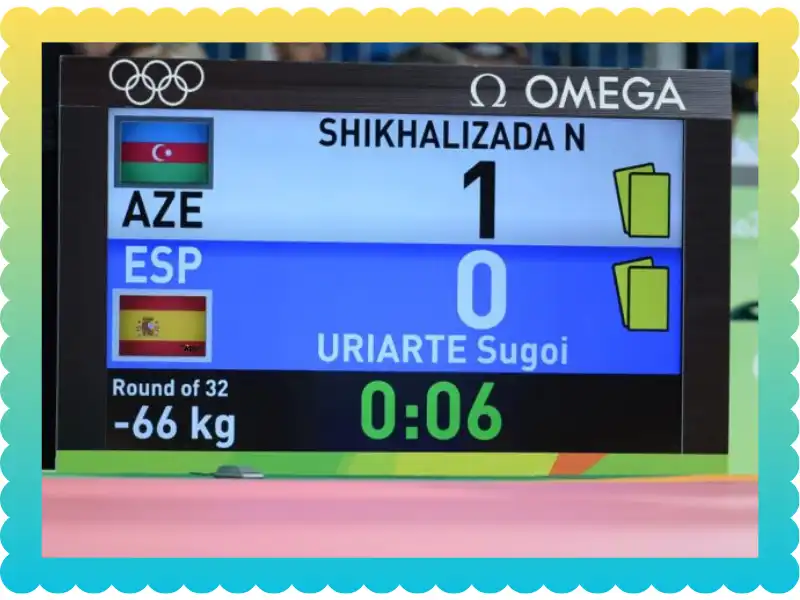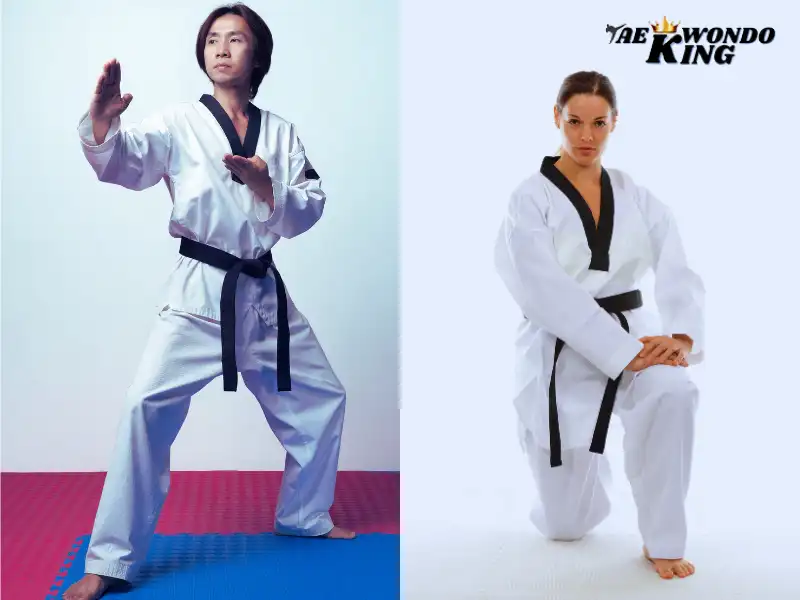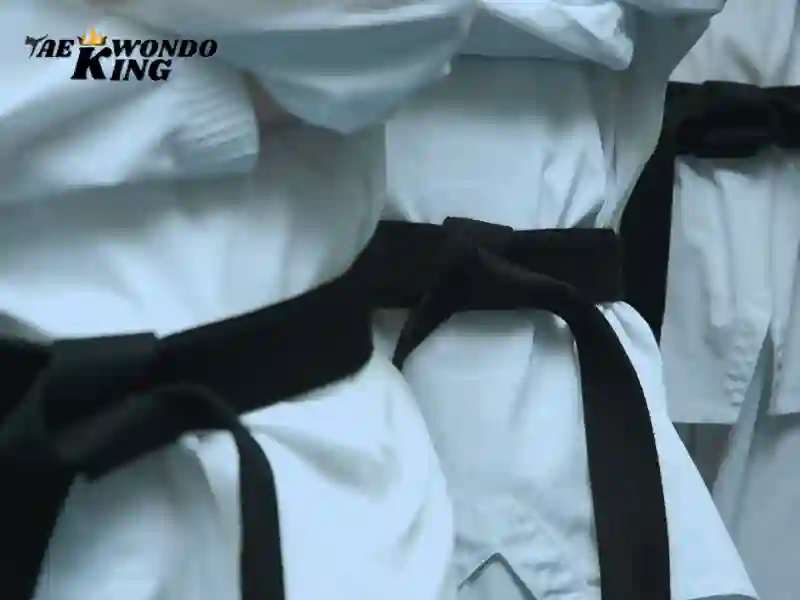
Running a judo tournament feels like conducting an orchestra, every element needs to sync perfectly for the event to flow. As a coach and occasional tournament organizer, I’ve tried various tools to keep matches on track. But the Smart Judo Scoreboard from Taekwondo King has become my reliable conductor’s baton.
It’s simple, intuitive, and designed with the chaos of a judo event in mind. Let me share why this tool stands out among others. While being honest about where it shines and where it could improve.
See the latest Top-Rated Adjustable Dumbbells Set Price Today Used by Champion.

Why Judo Scoreboard Feels Like a Trusted Friend
The Smart Judo Scoreboard, found at taekwondoking.com/judo-scoreboard/, is like that friend who always shows up prepared. Its interface is clean and straightforward, displaying key elements like the match timer, Ippon, Waza-ari, Shido, and Osaekomi timer clearly. I remember my first tournament using it, volunteers, many new to scoring, picked it up in minutes. The simplicity meant less time explaining and more time focusing on the athletes. Unlike some apps that overwhelm with cluttered menus, this one keeps things minimal yet functional, which is a lifesaver when you’re juggling a packed event.
What sets it apart from others, like the Scoreboard Judo app on Google Play or JudoManager, is its focus on ease. Many apps try to do everything, manage brackets, registrations, even weigh-ins, but the Judo Scoreboard sticks to what matters most: real-time match tracking. It’s not trying to be a Swiss Army knife; it’s a sharp, single-purpose tool that gets the job done. For small to mid-sized tournaments, this focus feels refreshing.
Features That Keep the Match Moving
The scoreboard’s design mirrors the rhythm of a judo match. Tap the timer to start or stop, hit the score for Ippon or Waza-ari, or mark a Shido with a quick press. The Osaekomi timer syncs seamlessly with the match clock, which is critical when every second counts. I’ve used tools like Ipponboard, which is great for its gamepad control option, but it can feel complex for new users. The Judo Scoreboard, by contrast, feels like it was built for people who just want to get started without a manual.
Customization is another strength. You can tweak match times or hide player names for privacy, which I found helpful for youth events. The visual clarity, large fonts and bold colors, makes it easy for referees, athletes, and even spectators to follow along. Compared to physical scoreboards, like the DJB/IJF board from Dax Sports, this digital version saves space and setup time. It’s like swapping a bulky flip chart for a sleek tablet.
See the latest Top-Rated Adjustable Dumbbells Set Price Today Used by Champion.

How It Stacks Up Against the Competition
I’ve tested other tools, like ScoreJudo and JudoShiai, which are solid in their own right. ScoreJudo, for instance, is free and works across devices, but its interface feels dated, and it lacks the polish of Taekwondo King’s offering. JudoShiai is powerful for large tournaments, with features like automated weigh-ins, but it’s overkill for smaller dojos. The Judo Scoreboard strikes a balance, it’s not as feature-heavy as JudoManager, which powers global events like the Judo World Championship, but it doesn’t need to be. For local clubs or regional meets, it’s just right.
One thing I appreciate about Taekwondo King as a brand is their understanding of martial arts needs. They’re not just churning out generic sports tech; their tools feel crafted by people who know the mat. This scoreboard reflects that, with rule-compliant features that align with the latest IJF standards, it ensures you’re not stuck using outdated scoring logic.
Where It Could Improve
No tool is perfect, and the Smart Judo Scoreboard has room to grow. For one, it’s web-based, which is great for accessibility but can be a hiccup if your venue’s Wi-Fi is spotty. Offline functionality, like what ScoreJudo offers, would be a nice addition. Also, while it’s customizable, it doesn’t yet support advanced features like Bluetooth remote control, which apps like Scoreboard Judo include. For tech-savvy organizers, this might feel limiting. Lastly, integration with tournament management systems, like JudoShiai’s ability to sync with weigh-ins, could elevate it for bigger events.
That said, these gaps don’t overshadow its strengths. The tool is designed for ease, not complexity, and it delivers on that promise. If you’re running a massive international tournament, you might lean toward JudoManager. But for most clubs, the Judo Scoreboard’s simplicity is its superpower.
A Personal Touch That Resonates
Using this tool feels like having a calm assistant by your side. At a recent local tournament, I watched a volunteer, nervous about messing up, smile with relief as they navigated the scoreboard effortlessly. That’s the kind of experience Taekwondo King delivers: tools that reduce stress, not add to it. The brand’s focus on martial arts communities shines through, making you feel like they’re rooting for your event’s success as much as you are.
Why It’s My Go-To
The Smart Judo Scoreboard isn’t flashy, but it’s dependable, like a well-worn judogi that fits just right. It’s easy to use, visually clear, and tailored to judo’s unique scoring needs. While it could benefit from offline access or remote control, its strengths, simplicity, reliability, and rule compliance, make it a standout for small to mid-sized events. Compared to clunkier apps or overbuilt software, it’s a breath of fresh air.
If you’re a coach, organizer, or dojo owner looking to streamline your tournaments. Give the Smart Judo Scoreboard a try at taekwondoking.com/judo-scoreboard/. It’s not perfect, but it’s the kind of tool that makes you wonder how you managed without it. For me, it’s become the heartbeat of every smooth-running event I host.
See the latest Top-Rated Adjustable Dumbbells Set Price Today Used by Champions.
FAQs
A Judo Scoreboard tool is a digital application or online timer designed to accurately display and manage scores, penalties, and match time during Judo competitions or training sessions.
The main scoring terms on a Judo Scoreboard are:
Ippon: The highest score, ending the match instantly.
Waza-ari: A half-point score.
Yuko: A quarter-point score (no longer used in current IJF rules but seen in older systems).
Shido: A penalty.
A Judo Scoreboard tracks match time with a clock that counts down from a set duration, typically four minutes for senior matches. It also includes a timer for “Osaekomi” (pinning) and “Golden Score” (overtime) periods.
The “Golden Score” is a special period of overtime that begins when a match ends in a tie. On the Judo Scoreboard, the regular match clock resets, and the first competitor to score a point wins the match.
Yes, a Judo Scoreboard tracks penalties, known as “Shido.” These are usually displayed as small squares or lights next to each competitor’s score. Three Shidos result in a “Hansoku-make,” which is a disqualification.
A digital Judo Scoreboard is often preferred over a manual one because it offers greater accuracy and clarity. It automates timekeeping and score calculations, reducing the chance of human error during fast-paced matches.
Most modern Judo Scoreboard tools are software applications that can be run on various devices, including a laptop, tablet, or smartphone. Many can also connect to a larger display screen for the audience to see.
Yes, a Judo Scoreboard tool is excellent for practicing at home. It helps you time drills, simulate competition conditions, and get used to the rhythm of a real match.
Many modern Judo Scoreboard tools are web-based, requiring an internet connection. However, many apps can be downloaded and used offline, which is useful for locations with unreliable Wi-Fi.
The “Osaekomi” timer is used to track the duration of a pin or hold-down. The time displayed on the Smart Judo Scoreboard for this timer determines if the hold-down results in a score (e.g., 10 seconds for Waza-ari, 20 seconds for Ippon).
See the latest Top-Rated Adjustable Dumbbells Set Price Today Used by Champions.


Founder, Owner, and CEO of TaekwondoKing.
He is one of the top 100 martial artists in the World and among the top 20 referees in Bangladesh.
Ehatasamul Alom is an esteemed Kukkiwon Certified Taekwondo 3rd Dan Black Belt with over 15 years of experience in this dynamic martial art. Born in Rajshahi, Bangladesh, Ehatasamul’s journey with Taekwondo began at the tender age of seven. His passion led him to compete at national and international levels, where he has bagged numerous awards and honors. He is also a member of the Taekwondo National Referee Panel.
With a Bachelor’s degree in Sports Science from the prestigious Rajshahi University, Ehatasamul has a deep understanding of the technical and scientific aspects of martial arts and some other martial arts.
In 2022, Ehatasamul created the “TaekwondoKing.com” to share his knowledge, Free Resources, Values, and Real experiences. His articles focus on Taekwondo training techniques, competition strategies, Sport Products Reviews, and the art’s rich history and philosophy. He also writes about the importance of mental fortitude and discipline, key aspects of his teaching philosophy. He has already launched many sports, Taekwondo, and health-related Free online tools. His goal is to inspire both beginners and seasoned practitioners worldwide through insightful and engaging content.
If you need any help, contact Ehatasamul Alom at any time.




